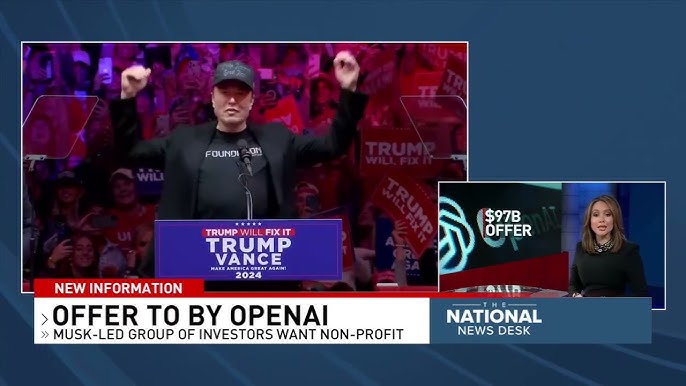In what could have been a monumental shift in the world of artificial intelligence, Sam Altman, the CEO and co-founder of OpenAI, has declined an acquisition offer from Elon Musk, chief executive officer of Tesla and SpaceX. Musk had proposed to acquire all assets of OpenAI, the cutting-edge artificial intelligence startup behind ChatGPT, for a whopping sum of $97.4 billion. This bid was not a solo endeavor; it was advocated by an influential group of investors, and received backing from Musk’s own AI firm, xAI. Upon successful execution, this deal could have led to a merger between xAI and OpenAI.
Musk’s ambitious offer, however, was met with a dismissive response from Altman. Via a post on Musk’s rival social media platform X, Altman expressed his refusal with a lighthearted counteroffer, ‘no thank you but we will buy Twitter for $9.74 billion if you want’. Interestingly, both Altman and Musk are among the key figures who founded OpenAI. This artificial intelligence research organization was established in 2015 as a nonprofit platform by a collective of entrepreneurs and researchers, with Altman and Musk serving as co-chairs.
Around three years following OpenAI’s inception, in 2018, Musk stepped down from his position. His departure was prompted by apprehension of potential conflicts of interest emerging from his dual roles: one as the CEO of Tesla, an automobile company deeply invested in AI technologies, and one as a co-chair of OpenAI. Consequently, Musk parted ways with OpenAI, although he remained an influential figure in the world of AI.
Post Musk’s departure, OpenAI went through a significant restructuring. The current organizational framework involves a distinctive partnership model, bringing together nonprofit and for-profit arms. Under Altman’s leadership, the tentative plan for the future is to eventually mold OpenAI into a wholly for-profit entity.
Contrary to Altman’s profit-oriented future vision, Musk has expressed his desire to restore OpenAI to its original, non-profit foundation. His sentiment stems from the collective ambition that led to the creation of OpenAI, which was centered on contributing towards the growth of AI technology for the general welfare of humanity. Musk’s stance is intriguing considering his ownership of xAI, which is essentially a competitor to OpenAI.
The board of OpenAI is presented with the onerous task of evaluating Musk’s substantial proposition. Even though it has been initially declined by Altman, an offer of such magnitude is likely to warrant in-depth consideration and discussions.
Now to pivot our focus to ChatGPT, a primary product of OpenAI. The acronym stands for Chat Generative Pre-Trained Transformer, signaling its capacity to engage in interactions mimicking human-like discourse. This powerful AI chatbot entered the technological landscape in the year 2022.
The functionality of ChatGPT extends beyond just engaging conversational capabilities. It employs sophisticated natural language processing techniques enabling it to carry out a diverse range of writing or composition tasks. Be it drafting articles or generating diverse content, ChatGPT exhibits a broad skill set.
An additional deployment of ChatGPT is observed in the realm of customer service. By leveraging its human-like conversational abilities and understanding, it can efficiently handle a wide array of customer queries. From resolving product or service-related issues to offering detailed explanations, ChatGPT presents a viable, AI-powered alternative to traditional customer support.


